
Earth
5 of Our Proudest Earth-Friendly Achievements
Happy Earth Day!
It’s the 50th anniversary of Earth Day today, and we’re amazed at what our country has accomplished in the past five decades, but we also know we still have so far to go. In fact, the recent reversal of nearly 100 environmental regulations and the addition of solar industry tariffs are a step backwards, hurting our environment as well as—we’re only now finding—hurting American businesses. Gaylord Nelson would be rolling over in his grave if he knew.
But we’re not here to talk doom and gloom on this landmark holiday. We’re here to share good news because there is indeed plenty of good news out there.
Despite the headwinds against them, responsible and innovative businesses, nonprofits and individuals still care deeply about our planet and our impact on it and are doing so many wonderful things to make it better.
Here at Organic Valley, the concepts of sustainability, regenerative agriculture, and generally caring for our planet have been part of our DNA since Day One in 1988, and we don’t have any plans of letting those values go by the wayside.
Here are 5 things that we are particularly proud of.
1. We’re 100% renewable-powered!
In 2019, we achieved an ambitious goal of becoming the largest food company to source all of our facilities’ electricity from renewable sources. In 2012, we completed the Cashton Greens Wind Farm in Cashton, Wisconsin, in partnership with local health care provider Gundersen Health System. Then in 2019, we brought the Cashton Solar Farm online, which put us over our goal!
The solar farm is part of a network of community solar projects across the region that are creating local renewable energy in rural areas that don’t typically have access to renewable options. We’re particularly proud of the solar project because it was the brainchild of one of our own employees, and the team overcame many hurdles (including frigid temperatures and a muddy, gloppy spring) to get it installed. Read about how this project came to life!
And beyond the big and bold wind turbines and solar array, our campus has a lot more sustainability features! Check out this video for a flyover of our sustainable campus.
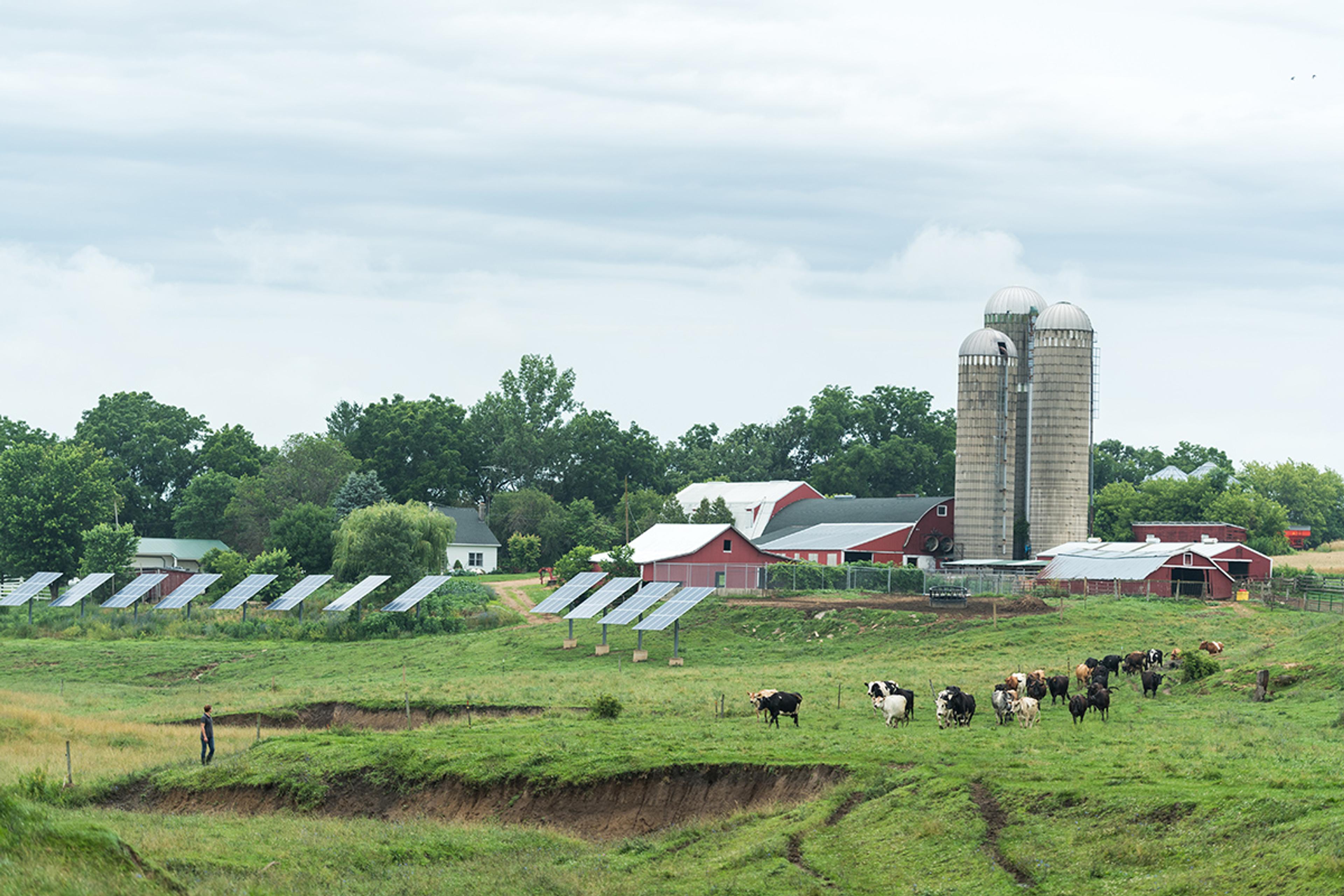
Cows on the Placke family farm in Wisconsin graze next to solar panels that provide power to the farm. On-farm renewable energy helps make Organic Valley farms more resilient.
2. Millions of dollars in on-farm renewable energy grants in 11 years
Our family farmers deeply care about their farms and their impact on the environment, so we have people on staff to help them navigate the complex world of renewable energy grants and installations.
Over the past 11 years, we’ve helped our farmers receive $8 million in renewable energy grants—with $3 million (a third!) just last year! Our farmers have installed solar arrays in their fields and panels on their barns, geothermal heat, wind turbines, and more. All this helps offset the energy the farm uses, which brings down their bills, making farming more affordable while also caring for the planet. Win-win!
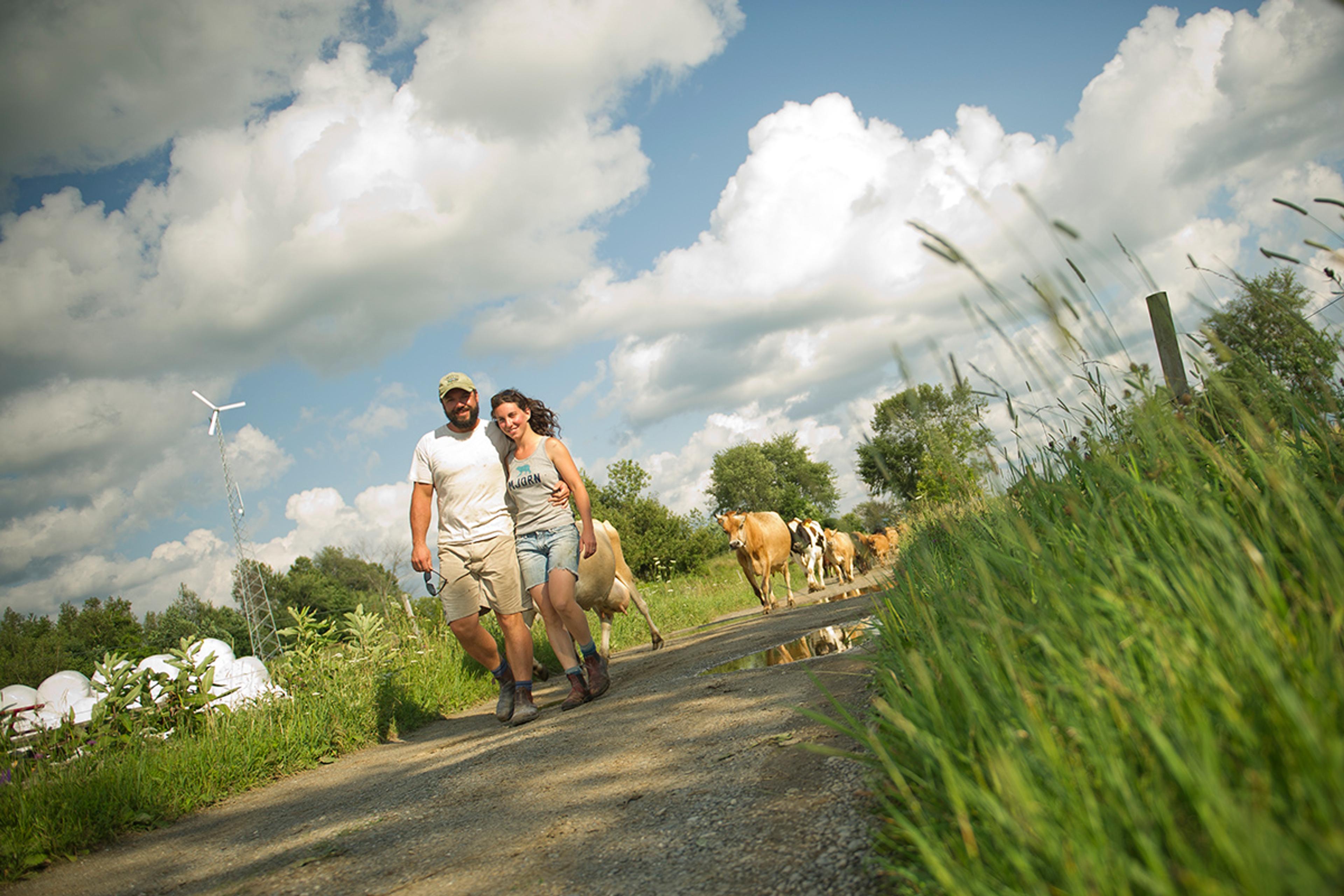
Small but mighty: The wind turbine here on the Webb family farm in Vermont may look little, but it provides a lot of power for their small farm!
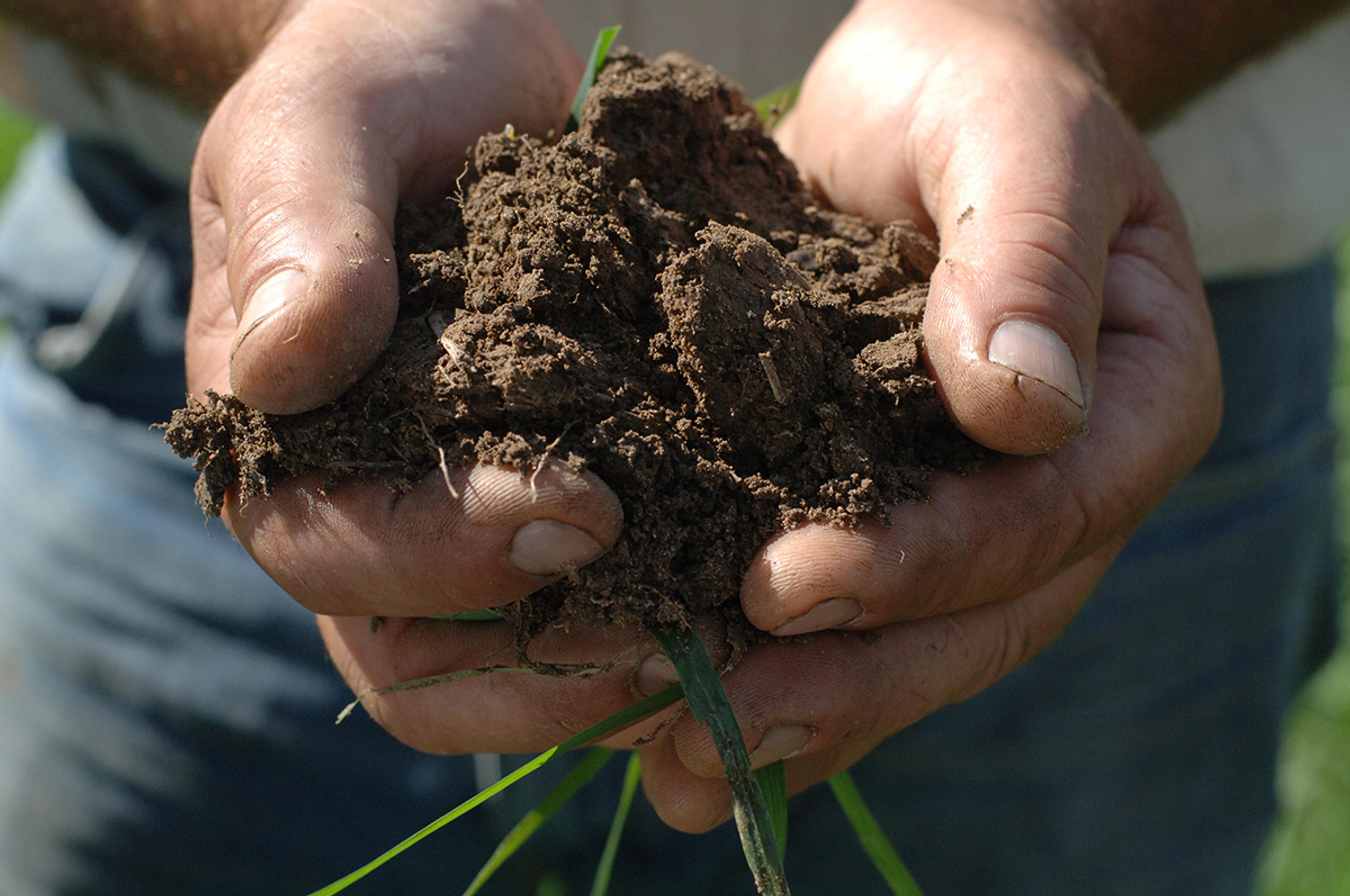
This dark, healthy soil is full of organic matter and supports a host of plant, animal, and microbial life that all contributes to growing healthy organic plants that feed our cows, pigs, chickens and turkeys.
3. We focus on the whole farm system, beginning with healthy soil
As organic farmers, we can’t rely on additions like synthetic pesticides and fertilizers to control weeds and pests or to make the soil more fertile. In fact, in our 30-plus year history, Organic Valley farmers have kept more than 386.8 million pounds of toxic synthetic chemicals off the land! Instead, we must focus on the literal root of where healthy food comes from—we must focus on the soil.
When the soil is nutrient-rich and fertile, the plants grown in it will be healthier and better able to stand up to weeds and pests. This means the animals who eat those plants will also be healthier, and they’ll make more nutritious food for us humans.
Not only that, healthy soil will store carbon from the atmosphere, which can help slow climate change. So much happens in the soil that matters deeply to our own health and the health of our earth!
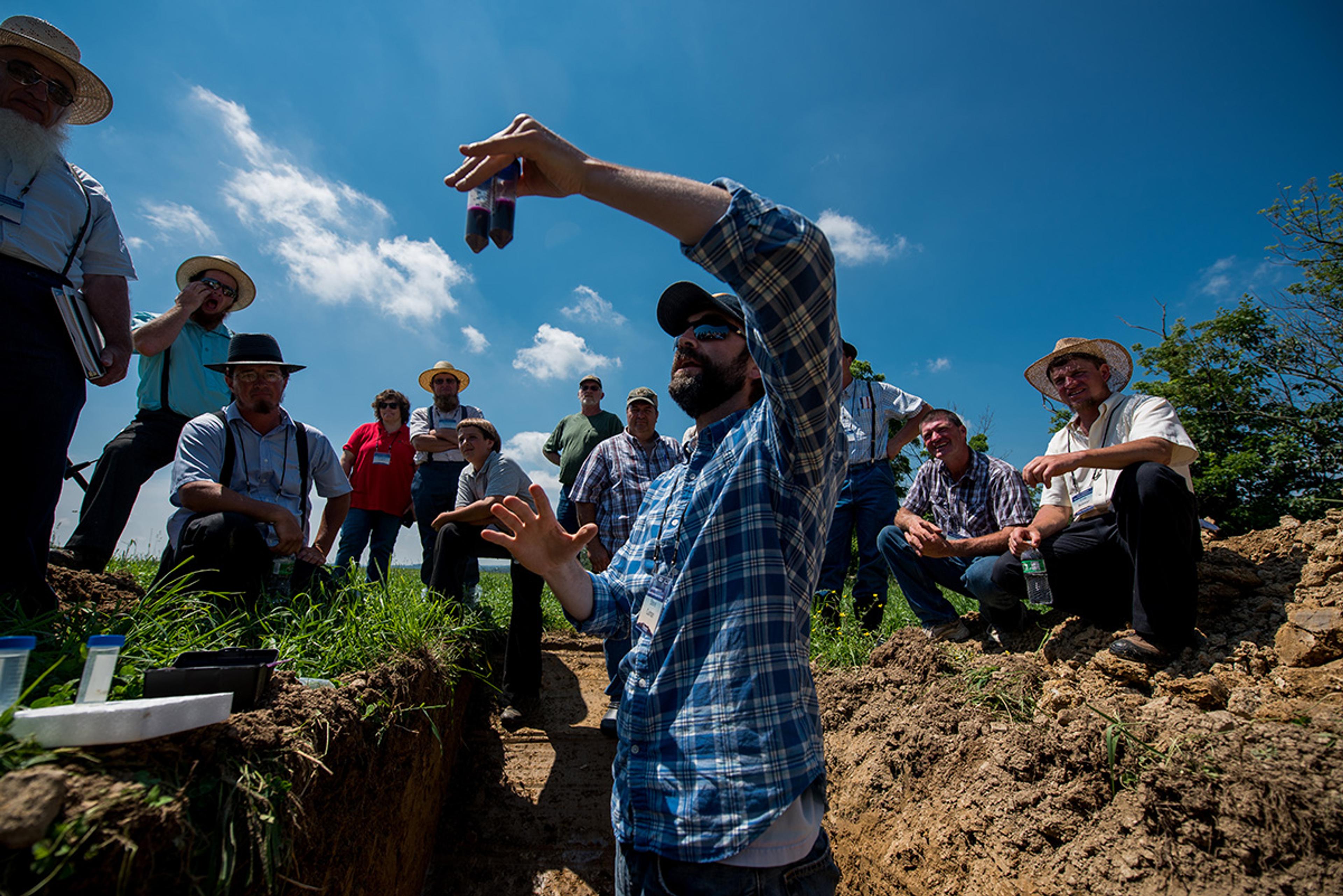
Organic Valley farmers frequently gather for agronomy workshops, where they learn about building soil health on their farms. Here, a workshop leader is showing these Ohio farmers how to do soil tests, which can tell a farmer what nutrients they need to add to their land to improve or renew it.
4. Renewing the land
So many of our farmers become members of Organic Valley because they share our value of caring for the land, which is not only good for the planet, it also helps ensure there’s a farm for the next generation to take over one day.
We have a farm family in Ohio who—amazingly—restored their farm from a strip mine back into a healthy, organic farm that is productive and safe for kids and cows.
We have two farms in California who are restoring streambanks (“riparian” areas) on their farms to prevent erosion and clean water runoff. We look forward to sharing these stories with you in upcoming months!
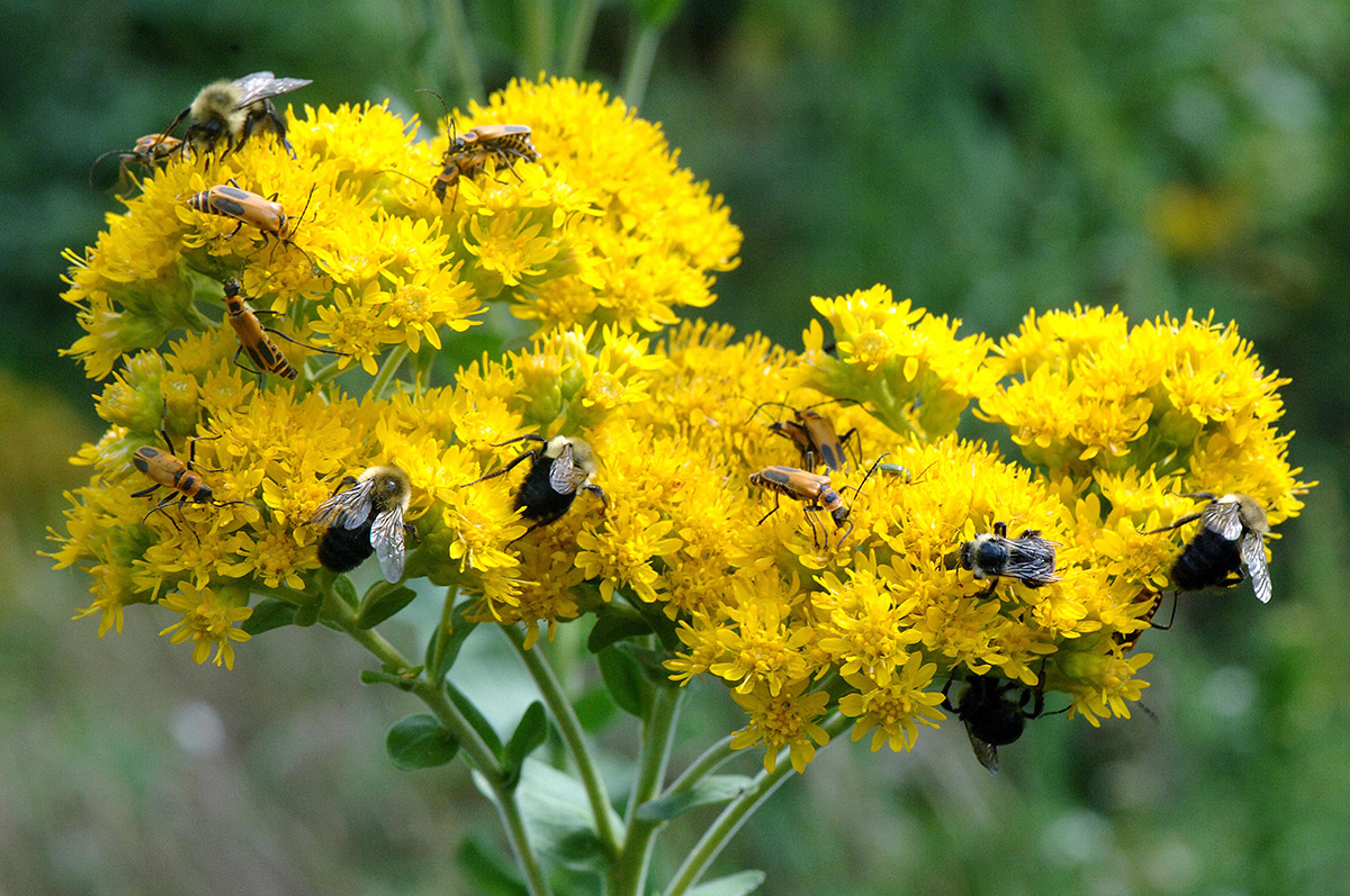
When “weeds” no longer are weeds: Allowing some plants like this stiff goldenrod to flourish in unproductive areas or along fence lines and property lines can create habitat for a host of pollinators and other wildlife, which in turn benefits the farm. (Photo by Dan Barron)
5. Bringing wildlife back to the farm
All of this work above, plus organic farming practices, makes our farms healthy places for bees, birds, butterflies, beetles, bats, beneficial bacteria and all sorts of biodiversity that doesn’t begin with B.
Not using toxic synthetic pesticides allows beneficial insects, birds and bats to thrive, and in exchange, they help control pests. It also protects life in the soil that we can’t even see but which play a huge role in keeping plants healthy.
Allowing some wild areas on the farm provides habitat for birds, bats, pollinators, butterflies and even larger wildlife like deer, opossums, mice and more. One of our farmers even delays the harvest of one of his fields until he knows a certain ground-nesting bird has fledged.
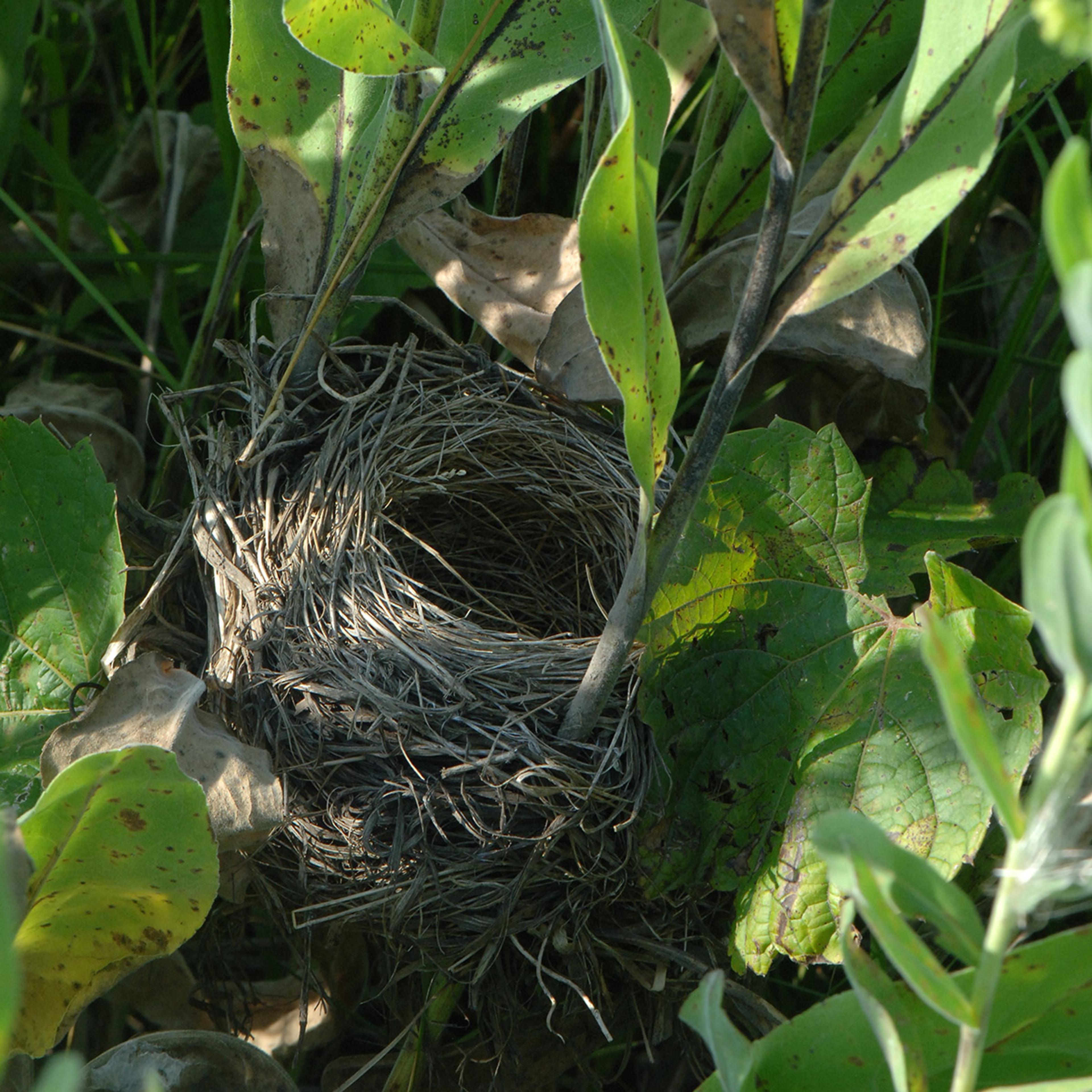
This stiff goldenrod along the edge of a farmer’s field is a perfect spot for a nest. (Photo by Dan Barron)
“What does all this have to do with me?” you ask? A whole lot!
All of this outside goodness contributes to all the goodness inside that carton of Organic Valley milk in your fridge, the breakfast sausage and bacon sizzling in your pan, and those eggs perfectly scrambled and topped with that delicious cheese!
We wouldn’t be able to do any of this sustainability work and regenerative farming without you backing us up, ready to enjoy the products of our farmers’ hard work and passion.
Thank you for making it possible for us to do what we love. We look forward to celebrating the next 50 years of Earth Days with you!
Related Articles
- Tags:
- climate,
- gratitude,
- environment,
- land stewardship & conservation,
- pollinators,
- renewable energy,
- soil health & science,
- sustainable business















